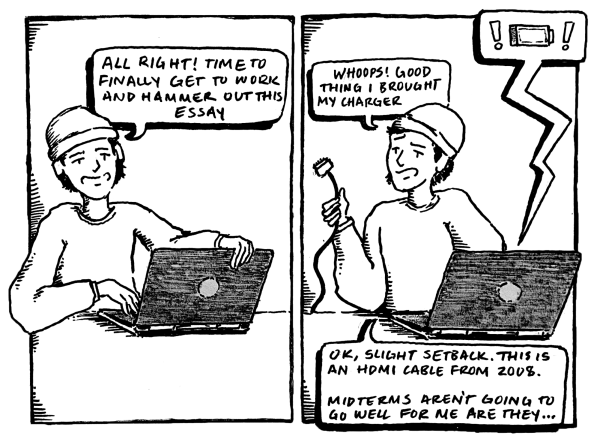Your Vote Affects Me
It might not always seem like it, but there are more than enough reasons for foreign nationals to be invested in American politics. I’ve had the unpleasant experience of being discounted by domestic students in conversations about politics, and honestly, I cannot think of a rational reason to do that. Like it or not, the politics of the U.S. impact people all over the world. International students bring unique and valuable perspectives to conversations about politics in the United States. Our lives are still so pivotally impacted by your vote and your conversations — don’t silence our voices.
I can say with unwavering confidence that I am excited for the Biden-Harris term in the White House. Joe Biden is, of course, yet another old white man with a questionable history, but at least he’s not Trump. More than that, there is comfort in knowing that the president-elect carries eight years of experience as vice president under Barack Obama. Just knowing that breathes faith into the idea of the POTUS, something that has genuinely been missing these last four years.
As someone who has grown up primarily in developing nations, India and Nigeria for the most part, I’ve felt the impact an American president can have over the lives of people who never got a vote on the matter. Whoever sits in the Oval Office has a voice that’s broadcast to all corners of the world; and when that voice tweets faster than it can think, Americans aren’t the only ones scared.
In 2016, everyone in my Indian high school was so consumed by the elections that our classes ground to a halt, with students glued to their laptop screens, constantly refreshing web pages in hopes of seeing new blue states. But with every state that swung red, our fear became more palpable. Devastation truly struck when, despite losing the popular vote, Trump won the election.
Trump attacked immigrants and other marginalized communities during his campaign and presidency. Yet, despite everything, people voted for him and continue to support him. Four years later, his belligerence has empowered and enabled some of the cruelest and most selfish forms of bigotry the world could imagine. As caring and concerned people, we were horrified by the treatment of children and their families at the U.S.-Mexico border, and yet, some people still have the audacity to justify it.
Racism is nothing new in this country; as a person of color, I have felt that fear of walking into a DMV in the heart of rural southern Ohio. It can be terrifying to think that any angry, racist American could be carrying a gun under their coat. At the tail end of Trump’s presidency, we live in a country where emboldened bigots no longer expect consequences for their belligerence.
Matters aren’t helped by Trump’s various attempts to harm immigrant opportunities by going after the H-1B visa earlier this year, not to mention the failed attempt to send international students home unless their colleges were offering entirely in-person classes. But it almost doesn’t matter that these efforts failed; the damage has already been done. Our status has been questioned, our legality challenged, our position in society threatened. Now, we fight to defend ourselves and our hopes, and the attacks against us just never stop.
The lines of tension in our fractured society have never been so visible. But maybe — and it terrifies me to say this — that might actually be a good thing. The problem was always there, but after Trump, no one can deny it anymore. It gives me hope, therefore, when Biden talks about decency: a word I had quite forgotten about in the context of politics.
When Kamala Harris came on stage during her acceptance speech, I cheered. I was, at the time, picking up Indian food to-go from a place near Cleveland. I cheered loud and unafraid of the possibility of someone hearing me. I cheered for the first time in months — forgetting the fear that had forced me to keep my head down in public, the fear that had replaced the respect I had for the U.S. as a land of possibility, the fear that now defines being an immigrant in this country.


